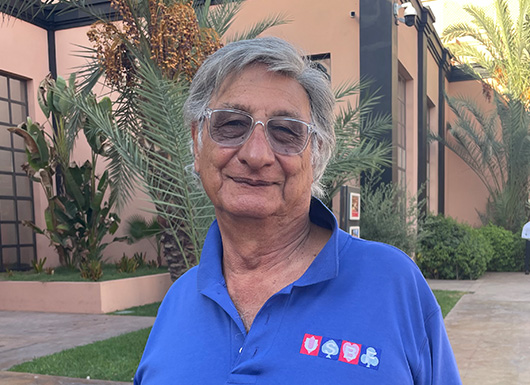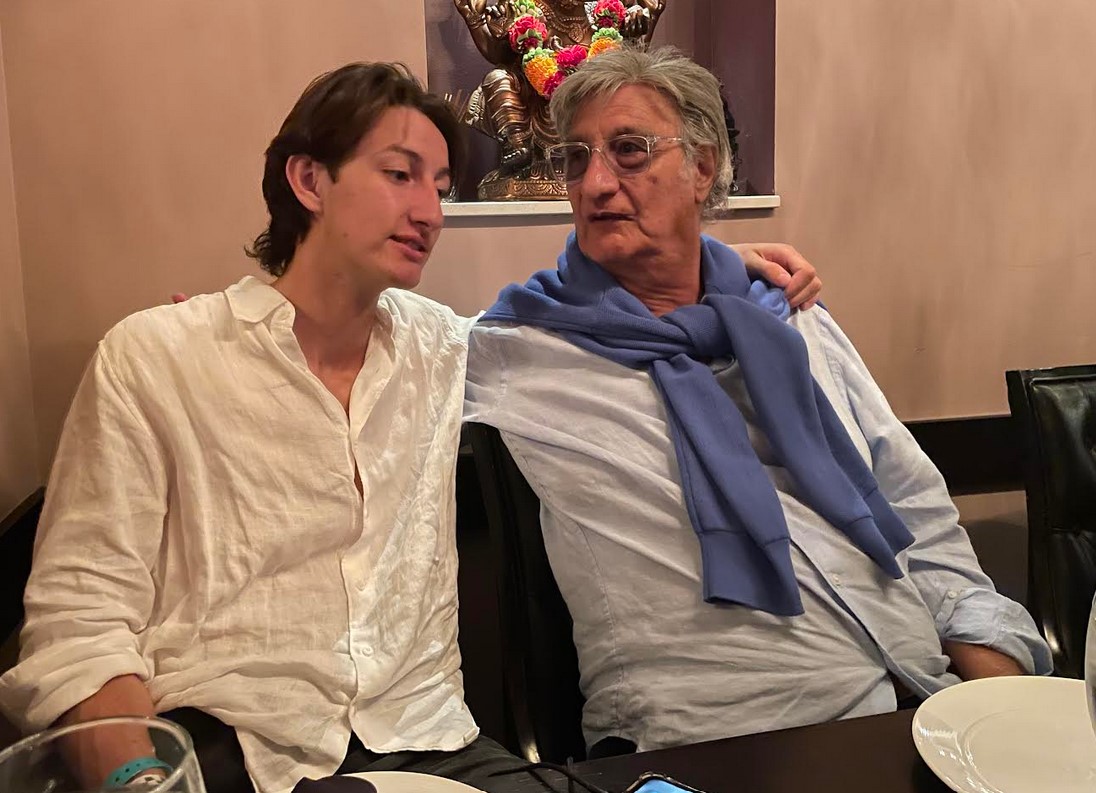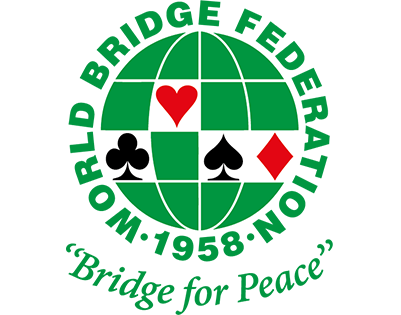
The Last Superstar
By Christina Lund Madsen In 46th World Bridge Teams Championships On 29th August 2023
Zia is the kind of person everybody knows, but nobody really knows. He has an authority and charisma not only unique for the bridge world. If he walks into a restaurant without a reservation and there is a line of people waiting, he walks straight in and begins to order the waiters around and nobody dares question him. He is the closest we will ever have to bridge royalty and we will never see his like. So I decide to interview the Bridge world’s last superstar.
It turns out to be harder than expected.
“I have been interviewed millions of times, what more can there be to say? Nobody wants to read another interview with me. How long is it going to take?”
Since I want to hear the better part of his life story, I want to say three hours, yet I sense that is the wrong approach, so I lie and say: “One hour?”
“No, no, no,” he says and waves his arm rejectingly at me. “You can have half an hour. You are just going to ask me the same questions as everyone else.”
After our negotiations he agrees to give me half an hour at the end of the day.
Zia Mahmood is born in 1946 in Karachi, Pakistan, yet grew up on English boarding schools from the age of six when his mother, who was a renowned gyneacologist, moved to England with Zia and his older brother.
“My father died in a plane crash in Pakistan when I was two. The only thing they found in the wreckage was that he had started to write down all the places he had assets, bank accounts and whatever. He was a very famous lawyer. 40 years later my brother was going to England to buy a house, and on the coffee table of the English family there was a picture of my father from his time as the captain of the Oxford Debating Society. My brother bought the house because he thought it was an omen.”
Zia talks very quickly while waving his hands as if he is in a hurry to get it over with.
“Don’t write all that down, nobody wants to hear about my father.”
He summons the waiter. “Where are our Margaritas? Remember not too much alcohol. We have been waiting for 35 minutes.”
We have waited five. I try to regain his attention.
How do you think it affected you growing up without any of your parents around?
“We never felt we missed anything because my mother was a very strong woman and we loved her very much. We were in boarding schools and going on holidays with her. We had a very big family with lots of cousins, one brother and three or four half-sisters from my father’s first marriage, but they were all much older than me.”
Knowing Zia, it might only have been two half-sisters. For him the glass is always in danger of spilling.
How did you like going to boarding schools?
“I enjoyed it because I played sports a lot. If you don’t do sports, you don’t have a good time.”
Zia played cricket mostly, but also squash, tennis and other sports. No bridge yet.
“I used to love table tennis, which surprisingly I see so many bridge players are good at – don’t ask me why.”
For the boys not good at sports boarding school was less fun.
“Salman Rushdie was at boarding school with me, and he didn’t have a great time. In one of his books, he wrote that the schools were divided between the nerds and those who were good at sports. Very few were both. “The best example is Zia Mahmood, who was very bright and also very good at sports.” I don’t think it is true, but it is a nice compliment.”
The Crack in the Armour
Zia’s mother had gone back to Pakistan and ran a hospital where the poor people were treated for free and the rich people subsidised them.
“At three or four in the morning she would go alone in the car to deliver babies in areas that westerners would consider savage places, but she didn’t care. In those days there was a lot of respect for women in Pakistan.”
After Zia finished school, he trained to become a chartered accountant, but spent more time in the casino than at the office.
“First I was a croupier in London, I didn’t work, I gambled all day long. I somehow managed to qualify anyway, and when my mother died, I went back to Pakistan.”
How did your mother die?
“She died very sudden at 52 with a heart attack. I was 22 at the time. She was an exceptional lady.”
That was a very young age to become an orphan, I say full of sympathy.
“It is the way life goes sometimes,” he shrugs and takes a cashew nut.
It is hard to penetrate Zia’s armour. He speaks and replies very quickly to all my questions and seems to not let his own words sink in.
How was that for you?
“Terrible. When you love someone very much and you haven’t met death before, it is a very painful thing.
Since then, I always try to make my children aware of human mortality and that it is just a part of life, but it is very shocking when it is the first time in your life.”
Zia is instructing the waiter on how to make margaritas. He asks for his room number for the check. Zia waves his arm at him: “First bring the drinks, then you get the room number.” He humbly bows for Zia, before he runs off to tell the bartender to hurry up.
How did you begin to play bridge?
“I have told this story so many times I prefer not to tell it again.” He looks impatiently at his phone to check how his team is doing.
I would like to hear it.
“I started playing bridge to meet a girl who was only allowed to go out to bridge parties, so I turned up at the bridge party, fell in love with the game and haven’t stopped playing since then. That was 50 years ago at least.
What happened to the girl?
“She got married and lived happily ever after, but she still tells people “I am the reason he learned bridge.””
Have you ever had your heart broken?
“In several places, every time I go down in a slam my heart is broken. As far as love is concerned you cannot have love without pain; both the joy is extreme, and the pain is extreme. My greatest heartbreak was with a girl I was going to marry and then she died. That was the saddest day of my life.”
This is the only time throughout our conversation he pauses. I feel a crack in his armour.
“I don’t want to go into the details too much. I was younger. I think certain things are personal and you keep it to yourself.”
The Immortal Father
After his mother died, Zia began to work for his family’s newspaper group, which was the biggest in Pakistan. His older brother was responsible for the family business, but he became more and more politically involved in opposition to the government and ended up in jail.
“My brother was more rebellious than me and very brilliant. He had one of the highest IQs ever tested in school. They said he had the IQ of Einstein.”
Zia’s brother spent nine months in jail, and when he came out, he decided to go to Abu Dhabi because of the oil boom, and Zia went with him.
“When we came to Abu Dhabi, I didn’t like it, so I said “I am going to London to play bridge. I will be back to work.” It is 50 years ago, and I never went back to work.”

Zia and Zain
How old were you when you had children?
“56, I married at the age of 55 principally to have children. I am not a believer in marriage, even my bridge partnerships don’t last too long. My wife was only prepared to give me children if I married her, which I think was reasonable enough. She was an English lady who I loved very much.”
What role have women played in your life?
“I have enjoyed the company of women my whole life and I much prefer to be in the company of women more than most men, whether it is a dear friend or a beautiful partner. I give you one line from my book:
“I think I am growing old now because there was a girl who always used to send me a message before a tournament “to play bridge like I made love”, and now she just texts me “good luck”.
I still have a few girlfriends and I try to have them make me feel young.”
How are you with family?
“I am a very family oriented person and my children and my brother come before anything in life, I would give up bridge and immortality if it could help them.”
I am not surprised to hear Zia is immortal.
Tell me about your sons Zain and Rafi.
“They are beautiful people as well as looking, They are totally different like me and my brother. He is a workaholic, and I am a playerholic.
What are their best qualities?
“You should see Zain one day with young children That is how you can tell. Rafi has got a smile that makes everyone believe he is their best friend, but he is a bit of a rascal like his father. He recently came home with an earring, so I almost cut his ear off. I am just too old for that. I think I would be a terrible father for a daughter, I am so eastern and possessive and would follow them around every time they went out on a date.”
Do you kids worry that you won’t be with them long?
“Frankly I think the opposite. I keep telling them I won’t last long, they keep telling me they heard that so many times they don’t believe me anymore. They think I am going to live to be a hundred.”
The waiter finally brings the Margaritas. Zia has emptied the bowl of nuts and looks impatiently at his phone, while I type madly.
“If we get knocked out soon you can bother me when we have more time.”
What scares you?
“The thought that my kids might become even slightly sick. The first time my son had a bad stomach I took him to the hospital. He had food poisoning. When they took a blood sample from him, I actually fainted. A friend told me before I had kids: “You should be careful cause when you have kids the fear that anything should happen to them is the most perpetual and constant fear of every parent.”
The only place where a human being is completely incapable of being selfish is when it comes to their children except in the most weird of people. Every time they go in a car or every time they go on a plane, I track the plane. When one of my bridge partners goes on a plane, I hope it doesn’t land for a few days. Stop writing, you are writing 54 pages.”
What is the worst thing about getting older?
“Nothing bothers me, I welcome old age. This year I am celebrating because it is five years since I had cancer. I didn’t tell anyone when I had it, only one family member. I didn’t even tell my kids, because what is the point of telling someone when it is very sad?”
When did you tell them?
After the treatment was over. I had many surgeries. I got throat cancer from shouting at my partner too much. They said: “Of course you should have told us”, but I don’t believe in hurting anyone unnecessary. Don’t write too much about cancer, it is not going to help anybody.”
“I was completely non-concerned about life and death until I had children. I used to sit on an airplane and think that if this plane crashed, would I be bothered by it? Until I had children. I want to see my children one more time.”
The Love Story
At the American Nationals in July Zia launched his book with the title: “Bridge – A Love Story”, which made people wait in long lines for a signed copy.
Zia tells me to write that he has 10 copies left of his new book that he doesn’t want to carry back home. “So tell people who want to buy it to come find me,” he commands.
What was your motivation for writing this book?
“Covid gave everybody time to do things they had left on the shelf. During covid I used to play bridge with friends for money 3-4 hours/day, and the rest of the day I wrote the book and drank champagne.”
Why did you choose that title?
“Because every bridge addict knows there is no greater love than the one they have for this game, and I have been faithful to my obsession for the last 50 years. Bridge is my longest love affair. It is not just a book about bridge, it is a book of stories, a book or romance, a book of fantasy.”
He gives me a bridge hand as an example of his imaginative approach to bridge despite my protests that I don’t write about bridge hands in my interviews, which doesn’t land well with him. I try to explain that the entire world has been aware of his creativity as a player for about 40 years. A day does not go by without Zia signing at least seven autographs and posing for 11 pictures. And he gladly does it. Zia may not have time to talk to a journalist, but he is always generous to his fans.
When were you in your prime?
“What are you talking about? Life, bridge, sex? I think in my thirties or forties. I started golf when I was 40, I think that was a wonderful way to combine bridge and activity. Write that I still haven’t reached my prime, it is yet to come.”
I sense his growing impatience and know that my 30 minutes are well overdue. I try to keep him with me a little longer by tickling his vanity.
How does it feel to be the superstar of bridge?
“I am not a superstar, I am an old fart. There are just not very many colorful people in the bridge world.”
I try to ask him some of the questions that usually makes people give lengthy answers in an attempt to keep him, but he doesn’t fall for it.
What makes you angry?
“It would take a separate interview to tell you. Mostly when I play bridge badly, I get angry with myself, which happens more often than most people would realize.”
For someone with his vocabulary, the replies are becoming shorter and shorter.
How would your ex-girlfriends describe you in three words?
“You can ask them, there are quite a few around.”
If you could pass on a piece of life advice to future generations, what would it be?
“Follow your passion.”
He sits looking at his phone and I try one last time to strip him from his armour.
Tell me something about yourself very few people know.
“I am desperate to go for dinner now.”
